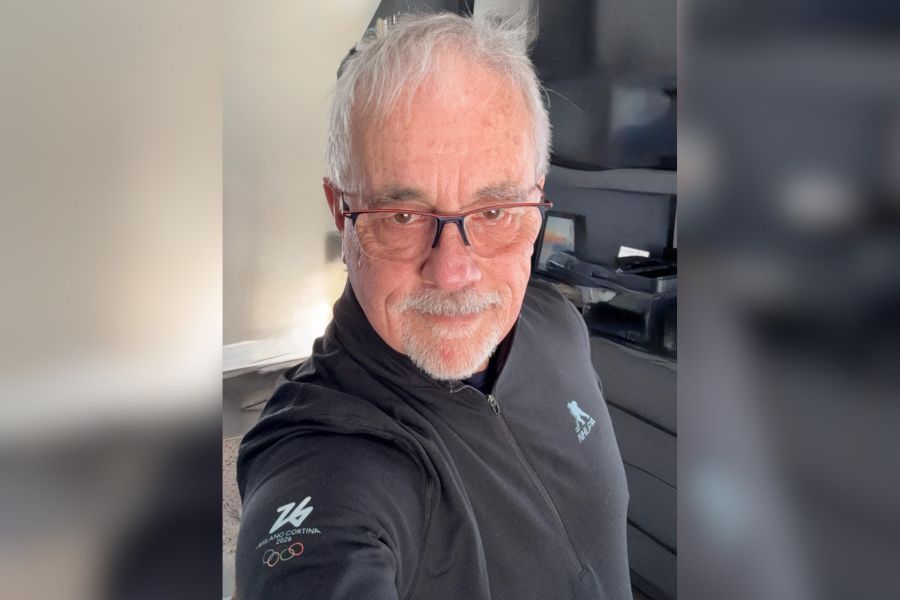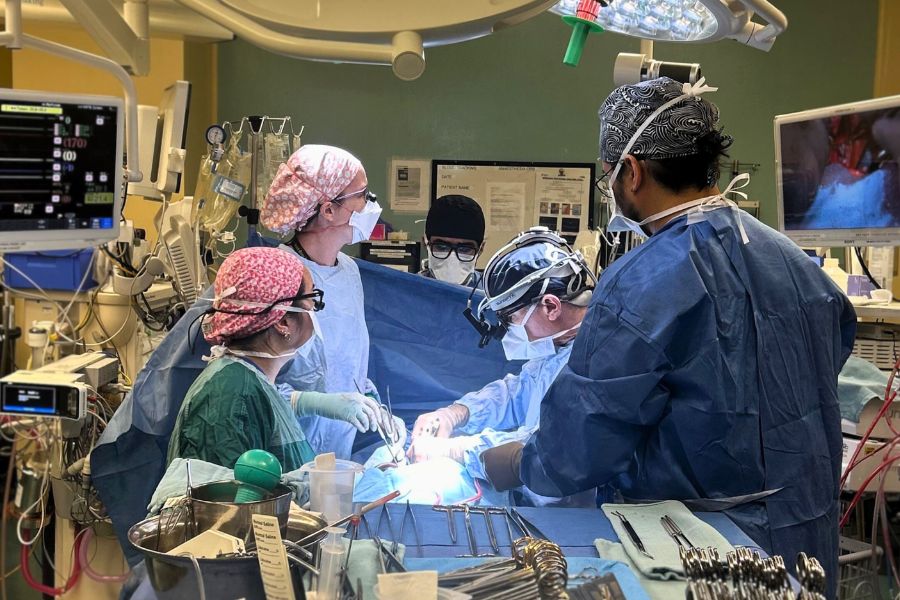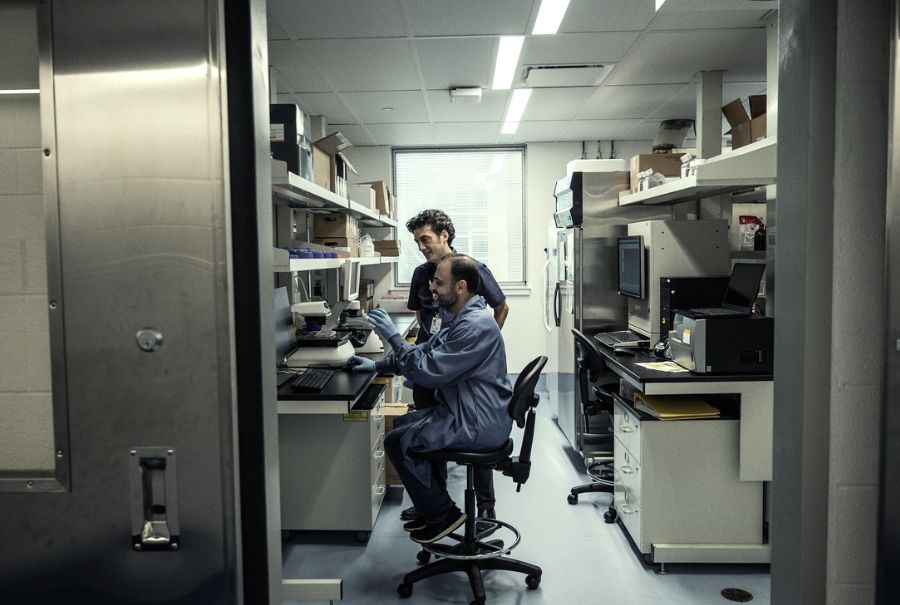Over the course of a lifetime, most people consider themselves lucky to recognize one person as their true hero. Rhonda Campbell Moon was so inspired by her care that she recognized 14 people from across UHN through the Honour Your Hero program and considers them not only as heroes, but friends.
For several years, Rhonda – a schoolteacher living in the town of Point au Baril Station, Ontario – had been afflicted with shooting head pains, the cause of which a local physician was unable to identify.
In the midst of province-wide COVID shutdowns, Rhonda’s symptoms escalated into a noticeable lump and a bleeding nose. This necessitated a scan and referral last November to Dr. Ian J. Witterick, clinician in the Department of Otolaryngology-Head and Neck Surgery at UHN’s Sprott Department of Surgery.
Unfortunately, the diagnosis was grave. It was discovered that Rhonda was afflicted with adenoid cystic carcinoma, a rare and usually fatal tumour that had been growing for four years.
“It was really large,” remembers Rhonda, “and when I finally got a scan, it was almost too late. The issue was that the tumour had started in the nasal cavity, then gone into the skull and went into the brain, so the operation was going to be extremely complex.”
As it turned out, complex was an understatement.
Five surgical teams, 15 hours
The rare nature of the tumour and the multifaceted nature of the operation meant that there would be no less than five full surgical teams involved, with the procedure taking nearly 15 hours at Toronto Western Hospital in January, 2021.
Among several surgical specialists were Krembil Brain Institute neurosurgeon Dr. Fred Gentili, who oversaw the neurosurgical team, Otolaryngologist-in-Chief Dr. Ralph Gilbert, who are also part of the Sprott Department of Surgery, who directed bone reconstruction in Rhonda’s nose and forehead, and anesthesiologist Dr. Gianni Lorello. The operation also encompassed skin grafts of Rhonda’s arm and leg, resulting in further surgical efforts, potential complications, and more steps in the recovery process.
As surgery approached, Rhonda remembers everyone treating her with care and compassion. Despite the unique nature of the operation, she never felt like just a case, but a person. This made “all the difference in the world” over her 11-day hospital stay. From Rhonda’s arrival to her departure from Toronto Western, staff always took the time to comfort her in ways that left Rhonda touched and gratified.
“I didn’t even have time to break down for a second before someone was reassuring me,” says Rhonda. “These weren’t just conversations about my symptoms – what was really important was how they were treating me as a person.”
This support and compassion was often demonstrated at times that were least expected, by some of the senior physicians overseeing her operation.
“Five minutes before surgery, Dr. Gilbert didn’t want to talk about the operation – he asked me to tell me something about me. He wanted to have a conversation about me as a person, so we were just chatting about things like fishing that we had in common.”
Recuperating in critical care following her procedure, Rhonda found herself weakened both physically and emotionally, but every person on call made her recovery possible.
“I needed to start laughing and to be able to look people in the face,” remembers Rhonda. “They all helped me so much with that. By the time I left, I felt I was going to miss them, and was thinking about them regularly.”
A message that resonates
Before leaving for home, Rhonda saw a poster for Honour Your Hero, a UHN Foundation fundraising program through which patients and their families can say thank you for the care, compassion and support received by an individual or entire care team, while making a gift to support the organization.
Simply seeing the words “Honour Your Hero” resonated deeply with Rhonda, and she was consequently inspired to give a gift honouring 14 people from her care team. Honourees included everyone from doctors and fellows, to nursing staff, to housekeeping and kitchen support. To further express her thanks, Rhonda wrote a detailed thank-you letter outlining the role every one of these heroes played during her hospital stay, and how they were indispensable to her recovery.
“After surgery when I opened my eyes and knew I was still alive and could think, all these thoughts just came back to me,” remembers Rhonda. “How I got through it and what it took for them to come up with a plan was just so special. They were all so very important, and I needed to give back so that they knew what they meant to me.”
Are you grateful for the care you or a loved one received at Toronto General or Toronto Western hospitals, or Toronto Rehab? Honour Your Hero here.


